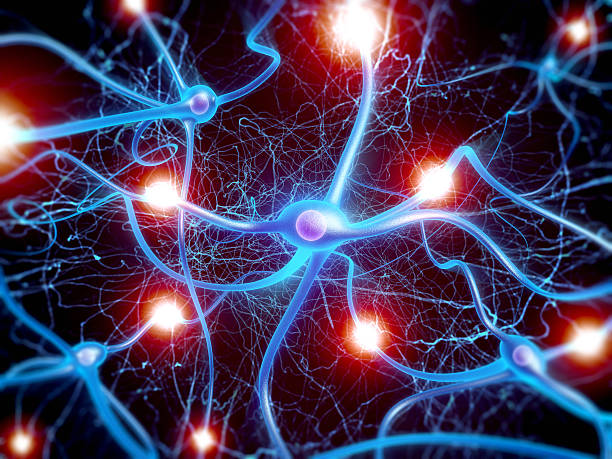What is Disaster Mental Health?
Disaster mental health refers to mental health services for victims, first responders, and medical personnel who experience disaster. Disaster can include a wide variety of sudden, catastrophic events that cause loss of life, such as an earthquake, a terrorist attack, or even a global pandemic.
What Conditions Are Associated With Disaster Mental Health?
Traumatic experiences during disaster can produce a variety of mental health conditions that last long after danger ends. Some of these may be related to neurological changes produced by long periods of “fight or flight.”
One of the most prominent conditions associated with disaster mental health is PTSD (Post-Traumatic Stress Disorder.) Once thought common only in military conflict, it is now understood PTSD can come from any intense experience of danger that provokes feelings of helplessness.

PTSD can have symptoms including flashbacks, memory loss (especially in relation to the traumatic event), anxiety, depression, difficulty sleeping, nightmares, and angry outbursts. The vast majority of PTSD sufferers are nonviolent and pose no threat to others.
Anxiety and depression are typical complications from any disaster. Both adults and children may feel guilty, believing they “should have done more.” Emotional flashbacks in which the sufferer re-experiences negative emotions without “seeing” or “hearing” the event, are common.
Disaster Mental Health Recovery and Lifestyle Changes
Disaster mental health treatment often includes a combination of medication and therapy. Medication focuses on reducing symptoms of anxiety and depression. Therapy can be in a group or one-on-one setting. Its primary goal is to help a sufferer process trauma.
One of the biggest challenges in disaster mental health care is the difficulty sufferers face verbalizing their experiences. Processing the emotions that come from trauma help reduce their effect on a person’s life. Novel approaches such as art therapy help many individuals express trauma in a way that helps. Techniques like journaling may also be used.
Disaster mental health patients need to identify psychological triggers in their environment. These triggers can cause them to re-experience the emotions or sensations of a past trauma. At first, recognizing and avoiding such triggers is advisable. With professional help, it’s possible to overcome the negative associations of triggers in a controlled environment.
Disaster Mental Health Research

Disaster mental health has been a prominent concern in psychology for decades. As researchers have uncovered effects of trauma on the brain, it has become clear profound neurological changes can occur during disaster even if one is not physically harmed.
Disaster mental health research focuses on two main areas: Reduction and treatment. Reduction aims to equip at-risk populations, like police and EMTs, with coping strategies to manage trauma. Treatment focuses on the neurobiology of trauma, creating better clinical resources for disaster mental health.
Why is Further Disaster Mental Health Research Necessary?
Millions of people all around the world are affected by mental health issues arising from disaster. The lessons of disaster mental health apply to everything from the COVID-19 outbreak to individual experiences of sexual assault or other criminal violence. With that in mind, all disaster mental health research has potential to help a broad spectrum of the population.
Disaster Mental Health Clinical Trials
This list contains all disaster mental health clinical trials on record at ClinicalTrials.gov. To feature a clinical trial on our site, contact us.
- A Study Assessing Arrhythmia Mapping With a Multi-Electrode Mapping Catheteron February 13, 2026 at 5:00 am
Conditions: Scar-related Atrial Tachycardia; Persistent Atrial Fibrillation; Paroxysmal Atrial Fibrillation; Ventricular Procedures; Ventricular Tachycardia; Ischemic Ventricular Tachycardia; Non-ischemic Ventricular Tachycardia; Cardiomyopathy; Idiopathic Ventricular Tachycardia; Premature Ventricular Contraction Interventions: Device: Paddle-Shaped, High-Density, Multi-Electrode Mapping Catheter Sponsors: Biosense Webster, Inc. Recruiting
- A Study of Vortioxetine in Japanese Pediatric Patients With Major Depressive Disorderon February 13, 2026 at 5:00 am
Conditions: Major Depressive Disorder Interventions: Drug: Vortioxetine tablets; Drug: Placebo tablets Sponsors: Takeda Recruiting
- A Study of Zasocitinib in Adults With Psoriatic Arthritis Who Have Not Taken Biologic Medicineson February 13, 2026 at 5:00 am
Conditions: Psoriatic Arthritis Interventions: Drug: Zasocitinib; Drug: Active Comparator; Drug: Placebo Sponsors: Takeda Recruiting
- A Study to Evaluate the Efficacy and Safety of Icotrokinra (JNJ-77242113) in Biologic-experienced Participants With Active Psoriatic Arthritison February 13, 2026 at 5:00 am
Conditions: Arthritis, Psoriatic Interventions: Drug: Icotrokinra; Drug: Placebo Sponsors: Janssen Research & Development, LLC Recruiting
- A Study to Evaluate the Efficacy and Safety of JNJ-77242113 (Icotrokinra) in Biologic-naïve Participants With Active Psoriatic Arthritison February 13, 2026 at 5:00 am
Conditions: Arthritis, Psoriatic Interventions: Drug: Icotrokinra; Drug: Placebo; Drug: Active reference comparator Sponsors: Janssen Research & Development, LLC Recruiting
- Comparison of Artificial Disc Implants in Cervical Disc Arthroplastyon February 13, 2026 at 5:00 am
Conditions: Cervical Spondylosis With Myelopathy; Cervical Radiculopathy; Cervical Disc Herniation; Degenerative Disc Disease Interventions: Procedure: Cervical arthroplasty; Device: Semi-Constrained Nuvasive Simplify; Device: Unconstrained Biomet Zimmer Mobi-C Sponsors: University of California, Los Angeles Recruiting
- Social & QoL Behaviors in Parkinson's Diseaseon February 13, 2026 at 5:00 am
Conditions: Parkinson Disease Interventions: Other: No Intervention Sponsors: Gregory Wallace Recruiting
- A Study to Evaluate the Efficacy and Safety of JNJ-88545223 for the Treatment of Participants With Active Psoriatic Arthritison February 13, 2026 at 5:00 am
Conditions: Arthritis, Psoriatic Interventions: Drug: JNJ-88545223; Drug: Placebo Sponsors: Janssen Research & Development, LLC Recruiting
- A Study of Zasocitinib in Adults With Psoriatic Arthritis Who Have or Have Not Been Treated With Biologic Medicineson February 13, 2026 at 5:00 am
Conditions: Psoriatic Arthritis Interventions: Drug: Zasocitinib; Drug: Placebo Sponsors: Takeda Recruiting
- JUPITER 4.0 - Risk Factors for Failure of Isolated Medial Patellofemoral Ligament Reconstructionon February 13, 2026 at 5:00 am
Conditions: Patellar Dislocation, Recurrent; Patellar Dislocation; Patellar Instability; Patellofemoral Dislocation; Patellofemoral Joint Dislocation; Patellofemoral Disorder Interventions: Procedure: Medial Patellofemoral Ligament (MPFL) Reconstruction Sponsors: Hospital for Special Surgery, New York; American Orthopaedic Society for Sports Medicine; Orthopedic Research and Education Foundation; Children's Hospital Medical Center, Cincinnati Recruiting
- Window On the Brainon February 12, 2026 at 5:00 am
Conditions: Disorders of Consciousness Interventions: Device: Ultrasound technique for diagnosis; Focused Ultrasound Stimulation for intervention Sponsors: Fondazione I.R.C.C.S. Istituto Neurologico Carlo Besta; IRCCS Istituto delle Scienze Neurologiche di Bologna; S.Anna Rehabilitation Institute; IRCCS Centro Neurolesi Bonino Pulejo Recruiting
- A Clinical Study of Tulisokibart (MK-7240) to Treat Radiographic Axial Spondyloarthritis (MK-7240-013)on February 12, 2026 at 5:00 am
Conditions: Radiographic Axial Spondyloarthritis Interventions: Drug: Tulisokibart; Drug: Placebo Sponsors: Merck Sharp & Dohme LLC Recruiting
Conclusion
With more people experiencing disaster, stigma around seeking disaster mental health treatment is beginning to fade. Disaster mental health clinical resources will depend on active clinical trials that uncover further information about the brain’s trauma response. Further medical research may help millions of people reclaim their sense of stability.
Sources
- https://www.phe.gov/Preparedness/planning/abc/Pages/disaster-behavioral.aspx
- https://www.medicalnewstoday.com/articles/325578
- https://www.rainn.org/articles/flashbacks
- https://emergency.cdc.gov/coping/index.asp
- https://www.mhanational.org/coping-disaster
- https://www.webmd.com/mental-health/what-are-treatments-for-posttraumatic-stress-disorder
- https://www.ptsd.va.gov/understand_tx/tx_basics.asp
